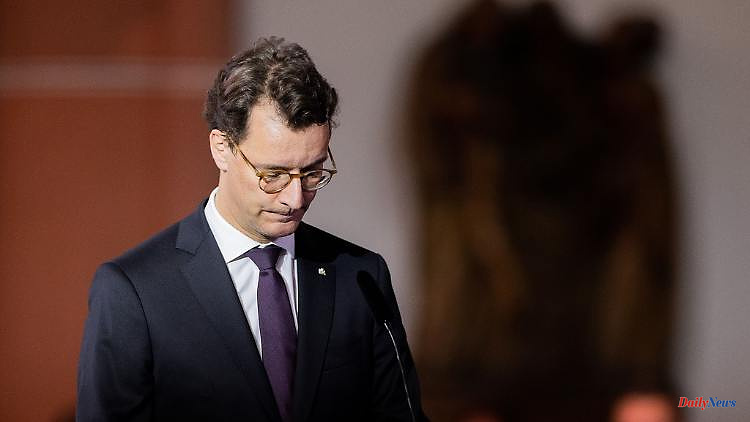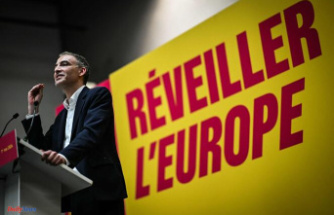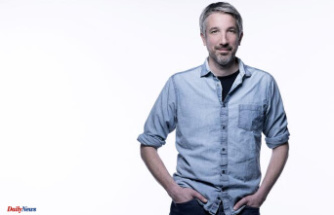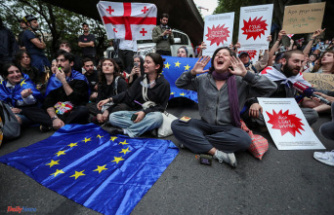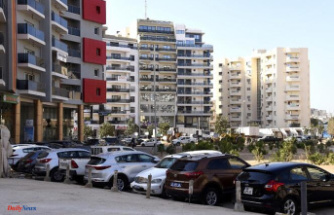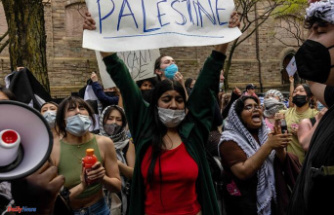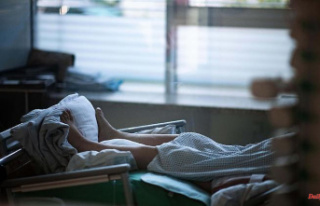The first anniversary of the great flood disaster is marked by commemoration. At the same time, politicians are making it clear that what happened there can happen again. And humans are responsible for that.
Euskirchen (dpa / lnw) - On the anniversary of the flood of the century in western Germany, Federal President Frank-Walter Steinmeier and North Rhine-Westphalia's Prime Minister Hendrik Wüst (CDU) warned of the consequences. The flood disaster was the result of man-made climate change, said Wüst on Thursday evening at a commemoration event after an ecumenical service in the Herz Jesu church in Euskirchen near Bonn.
In the church, which was itself affected by the flood, he emphasized in the presence of the victims' relatives, rescuers and numerous political representatives: "These are the consequences of our dealings with the earth." With rising sea levels and dry summers, dams, dikes and reservoirs would need to be built. Protecting the climate and preserving creation are the greatest challenges, warned the head of the new black-green state government: "It is up to our generation to set the right course."
The Federal President argued similarly. "We must make every effort, absolutely every effort, to combat the consequences of climate change, and we must take much more comprehensive precautions in order to leave our children and grandchildren a planet worth living on," said Steinmeier.
He emphasized that an entire country must now quickly find answers as to what needs to be done. Addressing the relatives of flood victims, he said: "I can also imagine that you are still tormented by one question: How was that possible? How could that happen? Why wasn't the warning given quickly and comprehensively enough?" This question of better civil protection must also be answered together.
In NRW, many of those affected and rescuers had reported that in some places the warnings had not arrived or had arrived too late, and that there were also deficits in the communication chains. Since last October, an investigative committee of the Düsseldorf state parliament has been investigating omissions by the authorities and gaps in civil protection.
In the flood disaster, 49 people died in NRW alone. The damage is estimated at around 13 billion euros. At least 135 people died in the flood disaster in Rhineland-Palatinate on the night of July 15, 2021. Two people are still missing there.
The city center of Euskirchen was also flooded a year ago. The Veybach, to which the city once owed its boom as a fabric manufacturing site, had become a raging torrent. The Herz-Jesu-Kirche in the city center was enclosed by the water, although it is actually a little bit higher. The heating system in the basement was destroyed, as was an old Station of the Cross.
In the service on Thursday evening, the dead were commemorated with bells ringing. A resident of Bad Münstereifel described how she and her husband desperately put up barriers in front of their house, but found that the water was rising faster. "Suddenly I saw our cars swimming past outside. That's when I knew: our lives are in danger." Her house was flooded in seconds. "I'll never forget the bursting sounds of the water destroying everything."
In his sermon, the evangelical President Thorsten Latzel expressly opposed religiously motivated interpretations of the flood. "The flood a year ago made no sense," he stressed. "It killed people indiscriminately and destroyed lives. The question is how we will continue to live after the catastrophe, how we will deal with it sensibly a year later." It makes sense to help others in crisis situations.
Before and after the service, Steinmeier and Wüst held personal talks with relatives of the flood victims. This was done in private, closed to the public.

